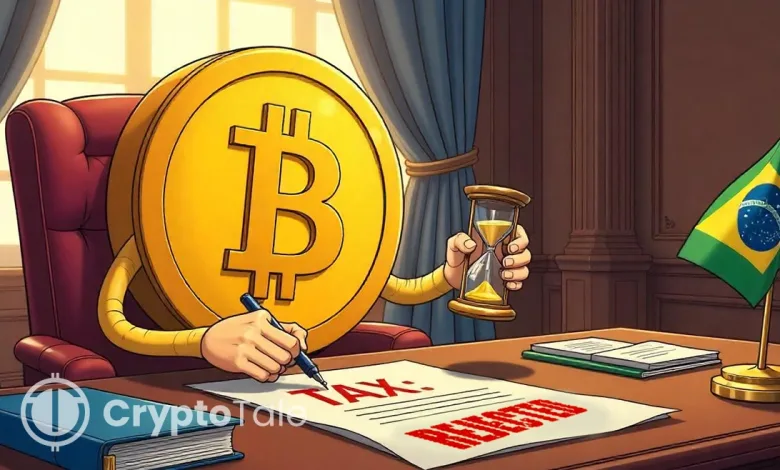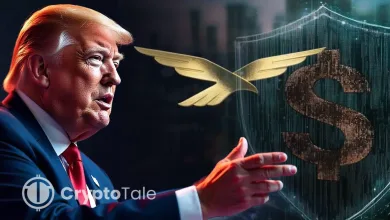Brazil Debates Legality of Lula’s 17.5% Crypto Tax Plan

- Brazil’s Provisional Measure imposes a 17.5% flat income tax on all crypto holders.
- Deputy Gayer’s bill challenges the tax, citing constitutional limits on executive authority.
- Critics warn the new tax could drive users toward foreign and decentralized crypto platforms.
A recent proposal by the Brazilian government to impose a flat-rate tax on cryptocurrency income has raised questions regarding executive powers and whether the move could impact the country’s crypto economy. Legislators are set to debate whether Provisional Measure 1,303 by the president, Luiz Inácio Lula da Silva, to impose a 17.5% income tax on crypto holders exceeds the executive branch’s constitutional powers.
Congress Questions Legality of Flat Crypto Tax
Deputy Gustavo Gayer, an opposition member, introduced a Legislative Decree Project to suspend the executive’s crypto tax directive. He maintains that only Congress has the right to establish or modify tax policy, as outlined in the Brazilian constitution.
Gayer stated, “The regulation of an emerging market, such as digital currencies, requires a more in-depth analysis of the fiscal, economic, and social impacts, and approval through a regular legislative process, with the participation of interested parties, is essential to avoid possible distortions in the country’s fiscal policy.” He argues that the executive’s Provisional Measure bypasses these procedures, adding that such decisions must go through the full legislative process.
Brazil’s constitution limits the executive’s power to issue Provisional Measures. Such actions must address urgent and relevant issues and cannot create new taxes without congressional approval. Gayer’s proposed decree asserts that the current measure fails to meet these standards and seeks its nullification.
Crypto Taxation Sparks Industry Concerns
Brazil’s cryptocurrency participants have voiced strong concerns about the new tax regime. Industry leaders warn that a flat tax of 17.5% on all digital asset income, regardless of portfolio size, could discourage local participation. Critics believe that the tax may drive investors and businesses to overseas and decentralized platforms, weakening Brazil’s position in the global crypto market.
Related: Conduit and Braza Launch Fast Stablecoin FX Swaps in Brazil
This debate arises as cryptocurrencies are increasingly being adopted in Brazil. According to Statista, Brazilians have shown a growing tendency to use cryptocurrencies for payments and investments. Most industry players are requesting that politicians consider a more nuanced approach, where relevant regulations would be feasible while encouraging market growth and compliance. The final outcome depends on Congress, which will examine the Provisional Measure and decide whether it aligns with constitutional requirements or should be overturned.




